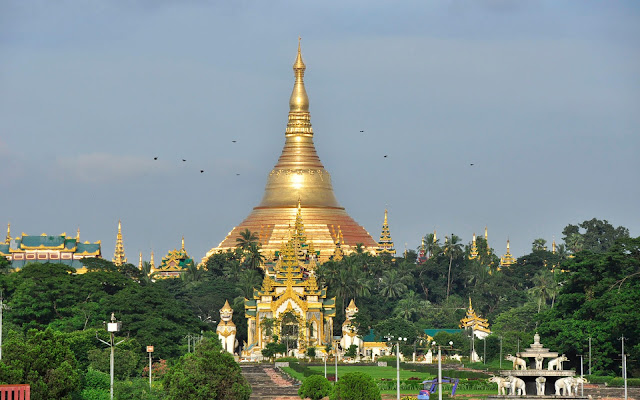WHAT TIME IS IT IN MYANMAR? – USEFUL PHRASES IN BURMESE
How can you say: What time is it in Myanmar? One of the most effective way to get to know local people in a country is to share a common language. Sometimes you just need a friendly smile. However, if you can learn some basic phrases, you will not only have an easier time getting around but you will also get a warmer response from the people. In Myanmar, most locals know a bit of English but being able to utter some phrases in Burmese is always well received. Here are some phrases that can be useful when you travel to Myanmar.
Hello – Mingalabar
This phrase is pronounced “Min-ga-la-ba”. Literally translated, ‘Mingalarbar’ means ‘it’s a blessing’ and is the first word used to greet a person- local or foreign! As you know, the first contact is always very important so a warm “hello” or ‘Mingalarabar’ guarantees a friendly reception.
Thank you - Cè-zú tin-ba-deh
This phrase is pronounced “Dje-zu-te-mah-dae”. The simple ‘thank you’ always goes a long way! However, do not be demotivated by its lengthy sentence. There are some variations such as “Dje-zu-bae”. Do not hesitate to use it since it is not rude and very common. When you are in a formal situation, you should add a speaker pronounce to the end: Shin for ladies or kamya for men (ie- “Dje-zu-te-ma-le-shin” (for women) and “Dje-zu-te-male-kamya” (for men). If this is all a bit too much, simply use ‘No worries’- Ya Ba De
Nice to meet you – Twe-ya-dawun-tha-ba-deh
A bit more difficult to remember…or to pronounce! Your pronunciation may cause some laughter, but your efforts will always be greeted with grateful smiles.
How much? – beh lauq leh
This sentence is pronounced “bae lawt lae”. It is nice to be able to ask it in Myanmar language, but it is even better to understand the answer! Combine the following numbers with ya – hundred and taung – thousand to bargain without fear of losing face.: 1 (te), 2 (hne), 3 (tho), 4 (le), 5 (nga), 6 (chauk), 7 (kun hnint), 8 (chi), 9 (koh), 10 (tese) (for example: 1 000 = “taung” and 2500 = “hna taung, nga ya”).
The bill, please! – Shi-mae
This phrase, contrary to some countries, will never be a source of unpleasant surprise! Of course, if you cannot remember you can always use the ‘international sign language’ of pretending to sign a paper in the air.
See more: Myanmar tour
See more: Myanmar tour
Excuse me – Ta-sait-lout
It is pronounced “Tae-sae-lo”. Now that you catch their attention, the hardest part is getting them to understand what you want! The next phrase will probably come on handy…
Note: if you mean to apologize, you will then say “sorry sorry”. It is important to say it twice as saying “sorry” only once can be considered as rude and you do not want them to be more upset!
Do you have….? – Shie la.
Burmese language puts the words ‘have’ after the noun. So if you want fried rice, instead of saying ‘Do you have fried rice’, you would say ‘htamin kyaw shie la?’ It is more than probable though that you will point at something on the menu and they will tell you “Mashibu” which literally means ‘no have’.
You may not always get a menu if you sit at a beer station. Here are some helpful words to make sure you won’t starve: rice = hta-min; noodle = khout-swel (pronounced “ko-swe”), water = ye, beer = beer (that one is easy!), tea = lahpet-yeh (pronounced “lae-pe ye”).
You are now ready to delve in to the local culture and enjoy your holiday in Myanmar!


Amazing blog,
ReplyDeleteYour blog is informative, thanks a lot for sharing.
Yangon tour company